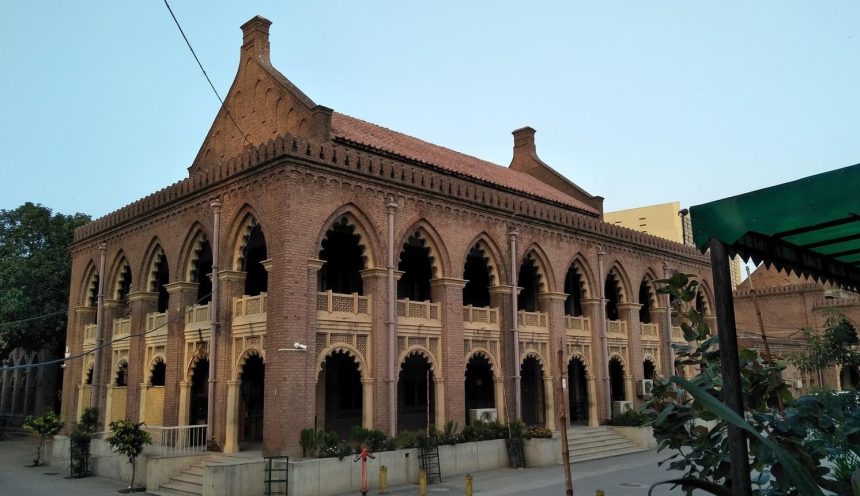The state is a political division of a body of people that occupies a territory defined by frontiers, according to political science. It is sovereign in its territory or jurisdiction and bears the authority to enforce a system of rules over the people living inside it. It is the legal enterprise of the state to ensure provision as well as safeguard the fundamental rights of its citizens, and a failure thereby is viewed as a failure of the state. Pakistan is classified as a developing country, where, inter-alia, the fundamental rights of the citizens are more often than not observed being infringed by various quarters. It is most pertinent to mention here that the average citizen here attaches little hopes to the state when the question of the safeguard of his elemental rights arises.
The three pillars of the state, i.e., the executive authority, the legislative realm, and the independent judiciary are believed to be supported by a fourth pillar, i.e., the media. It is appropriately believed that power tends to corrupt, and absolute power corrupts absolutely. The sane framers of the constitution of the United States had born this notion in mind, which roused them to introduce a doctrine of separation of powers. Hence, the American constitution affords birth to a system of checks and balances, and the same acts as a guiding beacon for Pakistan’s constitution. It is an established fact that the constitution of any state is expected to be embraced as a holy grail by all stakeholders, and a contradiction in this regard is viewed as an act of treason.
Over the years, the state of affairs in Pakistan went from the pot into the frying pan, and many a tyrant compromised the constitution. The judiciary, having been entrusted with the sacred task of palisading the constitution, often meekly submitted to such miscarriages of justice, concealing itself behind the much-condemned ‘doctrine of necessity’. “Ubi jus ibi remedium” goes the maxim of law, which translates as “where there is a legal right there is a remedy.” To each of their own. Pakistan was ranked at 130 across 142 countries by the World Justice Project in its annual report for the year 2023. The overall score, calculated through eight benchmarks, remained 0.38 for Pakistan.

In Pakistan, the jurists cite various excuses behind such a subpar rating, including but not limited to the voluminous burden of pendency, meagre resources both in terms of human resource as well as infrastructure, and an age-old culture of vexatious litigation sourced out of ulterior motives. The system of justice here is manoeuvred by two key stakeholders, i.e., the bar and the bench – or, in simpler words, the lawyers and the judges. These two entities are referred to as the two wheels of a single chariot, and it is validated that the fantasy of legal reforms in our justice system can not be realised without a passionate joint venture between these two stakeholders.
However, a paramount contradiction between the two lies in their respective sources – the office-bearers of the Bar are elected by their fraternity through a periodic oligarchy of election, whereas, the judicial officers are appointed by the Judicial Commission of Pakistan following a set criterion. Where the bar claims the representation of the majority of the stakeholders, the judiciary argues being designated meritoriously, and the resultant battle of superiority renders them unable to pioneer together in the pursuit of a common goal i.e the provision of justice to the masses. In addition to this, the bar views itself as a “saviour” for the judiciary, presenting as evidence its legion of campaigns bludgeoned in order to protect the judiciary – the most prominent of them being the triumphant long march against the General Pervez Musharraf-led regime leading to the restoration of the superior judiciary in 2007.
The popular sentiment amongst the judiciary, in this regard, is that the black coat reaped its own benefits every time it stood in front of the black robes, and the defensive shield extended to the latter always returned to the former adorned with laurels. “Actori incumbit probatio”, i.e. on the plaintiff rests the proving. The Law and Justice Commission of Pakistan released the bi-annual report of judicial statistics for the period from July to December 2023. As per the report, during the second half of 2023, the overall pendency of cases has increased by 3.9 per cent, reaching a staggering 2.26 million cases. With such a huge number of petitions awaiting adjudication, and a rough total of about 1500 judicial officers engaged in the mission of disposal, one can understand why the mills of justice grind slow.
To add salt to injury, these members of the bench are regularly entrusted by the provincial governments with peculiar tasks ranging from the supervision of the various elections to auctioning the heaps of scrap and discarded paper. In addition to this, a regular practice of irregular postings and transfers often hinders the dispensation of speedy justice, augmenting frustration of the lawyer and the litigant alike. The interference of certain ‘invisible’ hands in the due process of the law is an entirely different topic, and it is tragic to reflect that such practices have, in the most dire cases, led the judiciary to a bitter end.
The Law and Justice Commission is a federal government institution, headed by the Chief Justice of Pakistan and comprised of other members, including the Chief Justice of the Federal Shariat Court, chief justices of the high courts, the Attorney General for Pakistan, the Secretary of the Ministry of Law, Justice and Human Rights, and the chairperson of the National Commission on the Status of Women. The commission comprises of four other members, one from each province, appointed by the federal government, on the recommendation of the chairman, in consultation with the chief justice of the high court concerned from amongst the persons who are or have been holders of a judicial or administrative office, eminent lawyers or jurists, persons of repute and integrity from the civil society, members of the Council of Islamic Ideology or teachers of law in a university or college.
Entrusted with the cumbersome task of warranting the administration of expeditious justice to the populace, the commission finds itself in hot waters following the inferior ranking secured by the country’s justice system. The case of Pakistan’s justice system is prima facie, one requiring deeper appreciation, and the tentative assessment made in this episode can only be received as an opening for a larger debate on the subject. It is an established fact that all the stakeholders in this regard are deliriously desirous of achieving a stronger footing, and one can only hope for the state of affairs to take a positive turn. Where there is a will, there is a way.
















